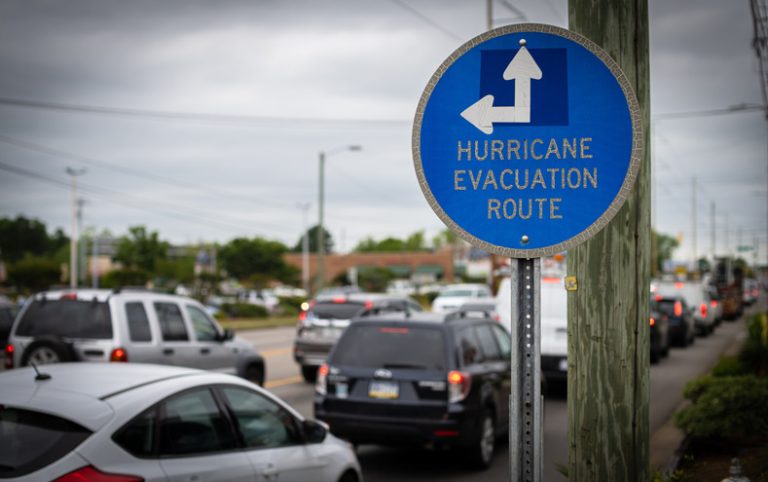As the world experiences more frequent and intense weather and climate events, robust models that predict how people behave before, during and after these extreme events are important for developing effective emergency response strategies. Increasingly, artificial intelligence (AI) is being incorporated into these models yet we don’t understand how most AI models make decisions, because the logic used to reach conclusions is not visible to users or developers. To be viewed as trustworthy, we need to better understand how these “black box” models work, according to Xilei Zhao, Ph.D., assistant professor in the civil and coastal engineering department, who is leading a project to develop AI methods that accurately and responsibly model human behavior during wildfires and hurricanes across the United States.

“AI has a very strong capability of dealing with big data to draw accurate predictions,” said Zhao, whose research is supported by the National Science Foundation Early Career Award (NSF CAREER). “If we are relying on an AI system to make decisions regarding people’s life and death situations, it’s very critical for us to develop a system that is trustworthy and responsible.”
Due to new technology, data about people’s movements and how they make decisions during disasters are more widely available and can be used to enhance disaster preparedness, for example, a model that can accurately predict how people will respond to evacuation orders would help disaster management professionals more effectively manage traffic flow and keep people safe.
Zhao and her team will incorporate behavioral theory into the AI development process to analyze whether individuals decide to evacuate during a natural disaster, and if so, when and to where. Next, the team will ensure the models are inclusive by evaluating their accuracy for different population groups and maintaining the accuracy for disadvantaged and advantaged populations. Models will be trained and regularized to make accurate predictions and to recognize and correct unfairness.
“In the past, we found out that AI models for people’s travel behavior are more accurate in higher income areas than in lower income areas,” said Zhao. “We want the models to be fair to make sure everyone in the community can be properly modeled by AI.”
Lastly, the models’ performance will be assessed for any new insights that can inform behavioral theory and advance knowledge.

This research will engage the next generation of AI-enabled engineers through the Scientist in Every Florida School program, which connects scientists with K-12 students and is led by Brian Abramowitz, K-12 education and outreach coordinator at the University of Florida (UF) Thompson Earth Systems Institute. High school students will have the opportunity to collect and annotate the data that trains the models and observe how they perform. At UF, Zhao plans to include the results in her machine learning applications class for civil engineering students. Professionals in disaster management will also participate in a training program co-developed with the Center for Equitable Transit Oriented Communities (CETOC) to strengthen their capabilities with AI tools.
“Ultimately, this CAREER work to make AI more accountable has the potential to significantly improve emergency management, social equity and community resilience,” said Zhao.
—
By Megan Sam
